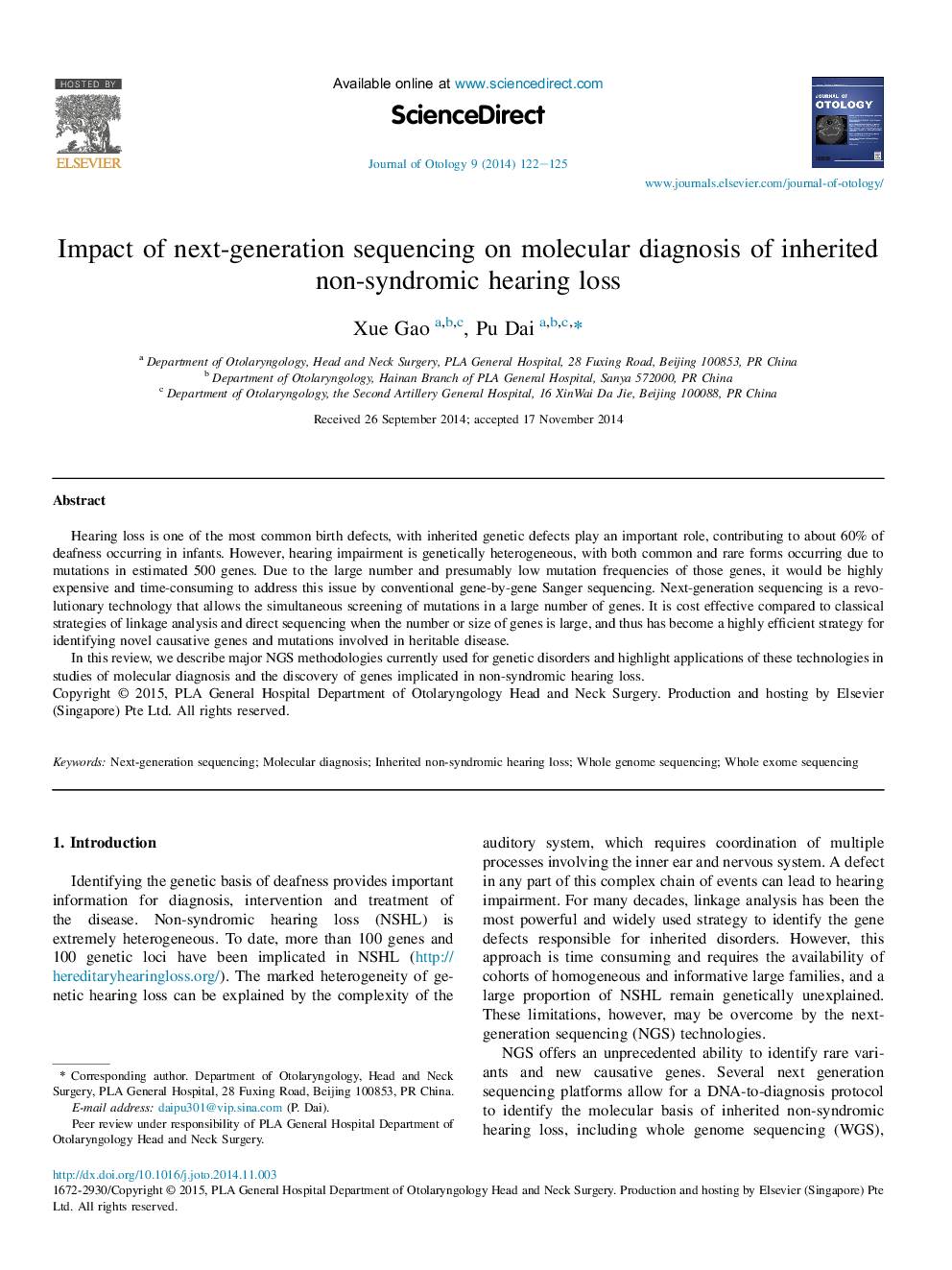| کد مقاله | کد نشریه | سال انتشار | مقاله انگلیسی | نسخه تمام متن |
|---|---|---|---|---|
| 4116704 | 1270271 | 2014 | 4 صفحه PDF | دانلود رایگان |
Hearing loss is one of the most common birth defects, with inherited genetic defects play an important role, contributing to about 60% of deafness occurring in infants. However, hearing impairment is genetically heterogeneous, with both common and rare forms occurring due to mutations in estimated 500 genes. Due to the large number and presumably low mutation frequencies of those genes, it would be highly expensive and time-consuming to address this issue by conventional gene-by-gene Sanger sequencing. Next-generation sequencing is a revolutionary technology that allows the simultaneous screening of mutations in a large number of genes. It is cost effective compared to classical strategies of linkage analysis and direct sequencing when the number or size of genes is large, and thus has become a highly efficient strategy for identifying novel causative genes and mutations involved in heritable disease.In this review, we describe major NGS methodologies currently used for genetic disorders and highlight applications of these technologies in studies of molecular diagnosis and the discovery of genes implicated in non-syndromic hearing loss.
Journal: Journal of Otology - Volume 9, Issue 3, September 2014, Pages 122–125
